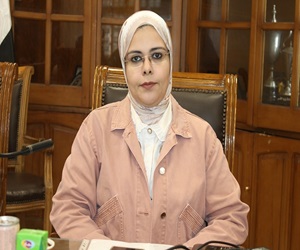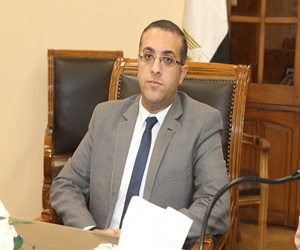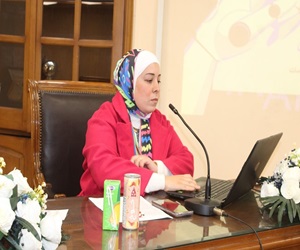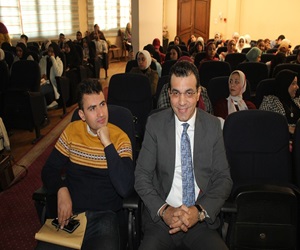“Using Artificial Intelligence Tools in Scientific Research” …A symposium at the Faculty of Arts
The Library and Information Department at the Faculty of Arts, Ain Shams University, organized a symposium entitled: “Using Artificial Intelligence Tools in Scientific Research,” under the patronage of Prof. MohamedtoAl-Abedeen, President of the University, Prof. Ghada Farouk, Vice President of the University for Community Service and Environmental Development Affairs, Prof. Hanan Kamel, Dean of the Faculty, under the supervision of Prof. Hatem Rabie, Vice Dean of the Faculty for Graduate Studies and Research, Dr. Moushira Ahmed Saleh, Head of the Department, who thanked the Faculty administration, headed by Prof. Hanan Kamel for providing opportunities to present new and innovative ideas through free activities and events and making them available to all students of the various departments, especially postgraduate students, in order to develop their scientific and creative abilities.
The symposium was hosted by Dr. Sherin Moussa, lecturer in the department, Dr. Ahmed Al-Sadawi, a lecturer in the department.
Dr. Sherin reviewed the subject of the symposium, which included the concept of artificial intelligence, its tools, and their importance, searching for scientific articles in the artificial intelligence environment, how to analyze scientific articles using these tools, as well as translating scientific articles, in addition to drafting reference citations, the method of creating presentations using artificial intelligence, and the ethics of using artificial intelligence in scientific research.
Also, Dr. Sherine explains the ChatGPT technology, which is used to produce text like human text. Chat GPT is one of the most advanced technologies in the world of artificial intelligence, which was launched by OpenAI in 2022 and has received very high demand, as it helps in summarizing articles as a human simulation as well as saving time and rephrasing, and translation and commentary on the results of statistical analysis to a large extent.
She also explained how to use it to search for any information and help in completing applied tasks. I also explained the problems that can result from its use, such as: plagiarism and intellectual property infringement. Sometimes it cannot achieve ideal results, and in this case using it as a reference may be Misleading to researchers.
She also illustrated that among its shortcomings is that it limits the ability to innovate, gives misleading results, and sometimes does not reach results at all.
 |
 |
 |
 |
In his research, Dr. Ahmed Al-Sadawi, reviewed another artificial intelligence tool, is Scispace, which specializes in the scientific research environment. It is a treasure for graduate students and researchers. He also explained how to subscribe to it through Google Email to access its services, register with it, and be exposed to it, and how to view presentations.
He also explained how to achieve maximum benefit through this tool, as he reviewed how to search for, obtain, and analyze scientific articles published in foreign languages using artificial intelligence, find out the most important results and recommendations, the study method used, sample vocabulary, suggest future studies and related studies, and translate all of this into the Arabic language, which contributes to helping Researchers.
He also explained in detail how to use artificial intelligence to formulate reference citations in a standard way and how to examine the percentage of scientific citations.
He also presented the capabilities of artificial intelligence in creating presentations and reviewed the advanced capabilities of these tools, focusing on their ability to create consistent content in addition to creating illustrative images that are consistent with the idea of the presentation.
At the end of the symposium, Sr. Sherin discussed the ethics of researchers and students when dealing with artificial intelligence tools in scientific research. She also stressed that researchers should not rely entirely on artificial intelligence and take its outputs as an alternative to the scientific dissertations or research produced by the researcher.
The attendees expressed their appreciation for the effectiveness of the symposium, wishing to repeat such seminars that discuss very important and modern topics.


.svg)




